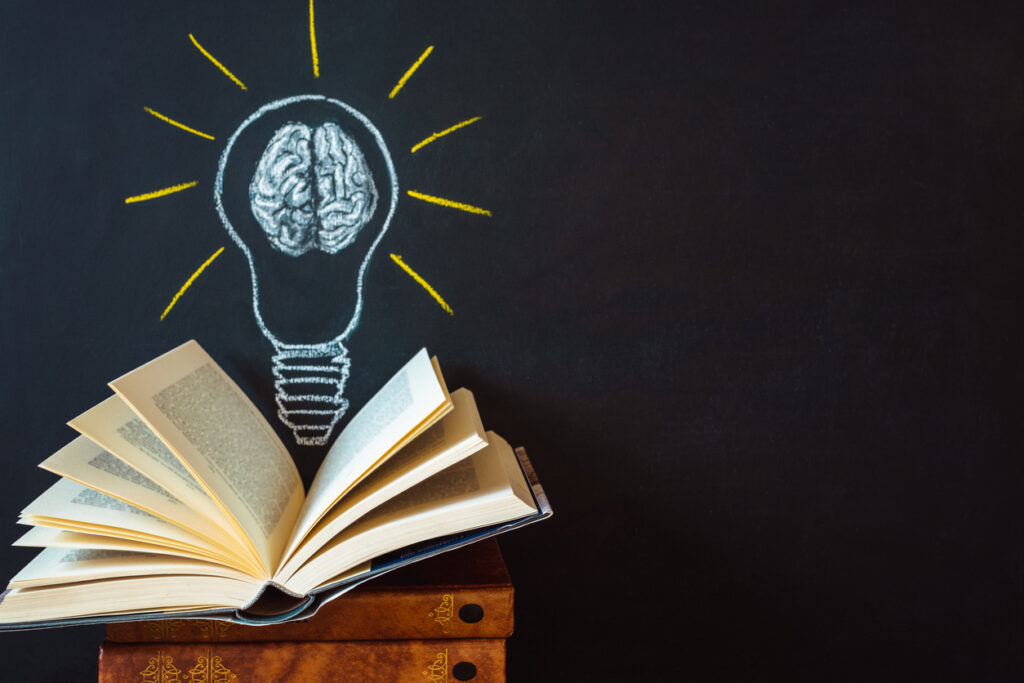From NCTE’s Standing Committee on Global Citizenship
This post was written by NCTE member Jess Terbrueggen, who is also a member of the Standing Committee on Global Citizenship.
When we look for the meaning of life, we want a story that will explain what reality is all about, and what my particular role is in the cosmic drama. This role makes me a part of something bigger than myself and gives meaning to all my experiences and choices.
As educators in the humanities, we seek to inspire a love of reading in our students. But more than that, we hope to imbue our students with a deep understanding of why reading is fundamental to the human experience.
With so many distractions in today’s attention economy, being an educator in the humanities can often feel like offering students a salad while they are standing in the junk food aisle. Why would they choose the salad? With so many interactive and flashy options at students’ fingertips, reading has slipped low on the list of recreational choices. So why choose reading?
Yuval Noah Harari, author of Sapiens: A Brief History of Humankind, asserts that “Homo sapiens is a storytelling animal that thinks in stories . . . and believes that the universe itself works like a story, replete with heroes and villains, conflicts and resolutions, climaxes and happy endings.” Neuroscientists who study the reading brain have confirmed these neural patterns.
In The Science of Storytelling: Why Stories Make Us Human and How to Tell Them Better, author Will Storr explains that when our eyes scan over letters in a book, the information is converted into electrical pulses. These pulses build models of whatever information the letters provide. Essentially, our brain rebuilds the model world that was originally imagined by the author.
This isn’t just happening when we read a book. Storr elaborates on the idea that our brains are continuously generating inner worlds for us to inhabit, much like the constructed realities found in fiction texts. Despite this, our subjective experience as conscious beings often leads us to perceive reality as external and objective. However, Storr highlights that the world we perceive as external is, in fact, a reconstruction of reality experienced only in our minds. It’s an act of creation by the storytelling brain—an elaborate hallucination. This is possible—and slightly different—for everyone because of our senses.
As evidence of this, consider the scientific research done on perceptions of reality in animals. Reality is mitigated, and thus constructed, through sensory input. Take vision, for example. Different animals have different color receptors in their eyes. Humans have three types in their retina, each sensitive to different wavelengths of light. Dogs have two. Bees and butterflies have four. The mantis shrimp has between 12 and 16. This means that all of these living creatures are visually perceiving the same world around them differently. And this is only one type of sensory input. Other animals perceive time differently based on their metabolic rates. They perceive sound, touch, taste, and smell differently. Humans, being animals ourselves, are perceiving the world with subtle nuanced variations as well. This is what makes storytelling and reading so magical. Because our brains are wired to construct stories and live inside of them based on sensory input, reading activates your senses—and thus your imagination.
Therefore, that seemingly subtle and less punchy option of reading (as opposed to the bevy of menu options like TikTok, Instagram, YouTube, and the like) is not only good for you, but is fundamental to your human experience. While it is true that you can also access stories through these flashier platforms, one crucial difference between these options and reading is that you lose the ability to engage your own imagination. When watching a video, you are passively receiving the world as it is provided to you. In contrast, when you read you are exercising your brain’s capacity to imagine, construct, and, in short, hallucinate a world based on the story you are reading. Given that we are all collaborators in the co-construction of an imagined world, reading actively involves you in the practice of imagining the world not just as it is, but as it could be.
The implications of helping our students understand this are powerful.
- Given that our brains are in a constant state of constructing reality, then reality is malleable.
- If it is malleable, then it is changeable—not static.
- If reality is not static, then we are capable of creating any world we can imagine.
Imagine that. The diverse, empathetic, inclusive, compassionate, and creative world we are all striving for is—in a real sense—just a hallucination away. And reading offers an extraordinary tool to help us get there.
Storytelling and reading are powerful forms of co-creation. An author creates a world out of his or her own mind, and hundreds, thousands, or—depending on the story—millions of readers engage in a collective type of hallucination with that story, imprinting it with their own embellishments. As the author spins ideas from his or her mind in the form of symbols and letters onto the page, readers from across time and space then scan those letters and collectively live inside of the created world, adorning it with details unique to their own imaginations. When we read, we collectively live in imagined realities together. This is a human superpower.
In a world where our students are pushing boundaries and striving to create new normative realities, storytelling and reading should be revealed to them as the real magic it is. Turns out, the salad is actually as good as anything in the junk-food aisle. It is still full of flavor and texture and crunchy possibilities. But—unlike most junk food—its subtle bites reveal the building blocks of life: the stories that contain the intellectual nutrients and vitamins needed to sustain our very human existence.

Jess Terbrueggen is an international educator, human rights practitioner, and literary arts advocate. She holds an MA in English education from Columbia University and works at the District of Columbia International School. Jess serves on the Steering Committee as the Washington, DC, Regional Representative for Human Rights Educators USA, is a member of the NCTE Standing Committee on Global Citizenship, and is a mentor for fellows in the Resolution Project.
The Standing Committee on Global Citizenship works to identify and address issues of broad concern to NCTE members interested in promoting global citizenship and connections across global contexts within the Council and within members’ teaching contexts.
It is the policy of NCTE in all publications, including the Literacy & NCTE blog, to provide a forum for the open discussion of ideas concerning the content and the teaching of English and the language arts. Publicity accorded to any particular point of view does not imply endorsement by the Executive Committee, the Board of Directors, the staff, or the membership at large, except in announcements of policy, where such endorsement is clearly specified.

